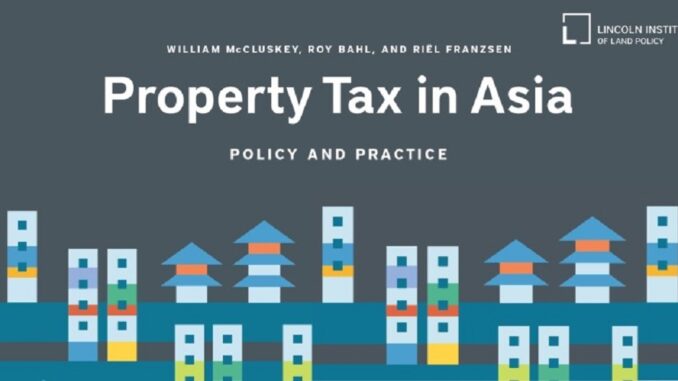
The property tax has great potential as a source of local government revenue in Asia, but its implementation has been uneven. The Lincoln Institute’s new book Property Tax in Asia: Policy and Practice provides the first comprehensive analysis of how this essential fiscal instrument has performed throughout the world’s largest continent.
Written by a team of leading experts and edited by William McCluskey, Roy Bahl, and Riël Franzsen, the book provides a comparative analysis and detailed recommendations, with 13 in-depth case studies covering a region that is home to nearly half the world’s population.
“Our case studies of these 13 countries and regions found that methods to modernize the property tax vary widely among them, including how they capture its advantage as a revenue-raising measure and make it an instrument for rationalizing land use policy and promoting social equity,” the editors write.
A resource for scholars and policy makers alike, the book provides the most thorough review to date of the laws, administrative practices, reform proposals, technologies, and political debates that shape the property tax across countries of all sizes and income levels.
The book finds that, in general, wealthier countries such as Japan, Korea, and Singapore have well-functioning property tax systems, although they face challenges—for example, unclear ownership of Japan’s growing number of abandoned homes. In China and Vietnam, which do not allow private ownership of land, local governments rely heavily on one-time land-use fees, which are less reliable and stable than recurrent taxes. In addition, many lower-income countries suffer from narrow tax bases, undervaluation of property, poor compliance, and political challenges.
To represent roughly 50 countries, the editors selected 13 cases in based on the use of the property tax, innovative administration, use of technology, and history with the property tax. The case studies include all the largest economies in South and East Asia, all jurisdictions with recurrent property taxes of at least 1 percent of GDP, and a range of lower-income countries throughout Asia. The cases include China, Hong Kong, India, Indonesia, Japan, Korea, Malaysia, Pakistan, the Philippines, Singapore, Taiwan, Thailand, and Vietnam.
Acknowledging that conditions vary widely, the book recommends the following 10 directions for reform:
- Develop a property and land tax strategy
- Take a comprehensive approach to reform
- Clarify the different roles of national, provincial, and local government
- Eliminate unnecessary tax exemptions
- Simplify the tax rate structure
- Rationalize the use of property transfer taxes
- Improve the quality of valuations and compliance with statutory revaluation cycles
- Improve voluntary compliance with the property tax
- Simplify and improve public management
- Harness the power of information technology
Property Tax in Asia: Policy and Practice is the latest in a series of Lincoln Institute books analyzing the property tax in large regions of the globe, including Property Tax in Africa: Status, Challenges, and Prospects (2017) and Property Tax Systems in Latin America and the Caribbean (published in Spanish, 2016).



